Derwent Valley farm stay is a slice of paradise worth flocking to
Hamilton farm stay Curringa offers the perfect way to experience a true working farm as well as being an idyllic rural getaway
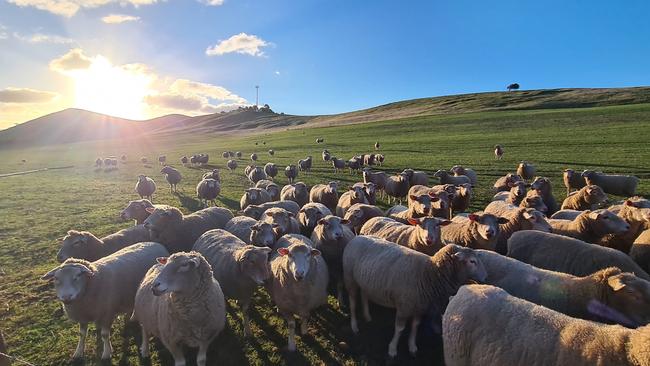
TasWeekend
Don't miss out on the headlines from TasWeekend. Followed categories will be added to My News.
The sheepdog is the most important animal on a farm,” my seven-year-old declared, matter-of-factly, when I told him we’d be spending the weekend visiting Curringa Farm.
I’m not sure where such authoritative knowledge came from – maybe the cute animal videos he loves watching on YouTube or a book from the school library. Because he’s spent his entire life as a city kid and has no actual farm experience.
So a trip to the country – to a 300ha farm in the heart of Tasmania’s Derwent Valley – seemed like the perfect opportunity to put his farm knowledge to the test.
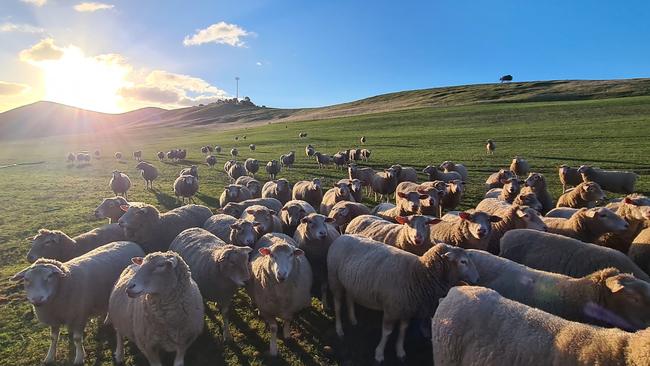
The mixed-farming property, run by husband and wife team Tim and Jane Parsons, is primarily a sheep farm, running about 3000 animals for meat and wool production.
But like most modern farmers, Tim – a sixth generation Tasmanian farmer – has diversified the property’s offerings since taking it over from his mother 20 years ago, and grows a variety of crops as well as running an award-winning accommodation business.
It’s this farmstay component that drew my family of four to Hamilton last weekend, to escape from the city for two nights to a relaxing rural setting.
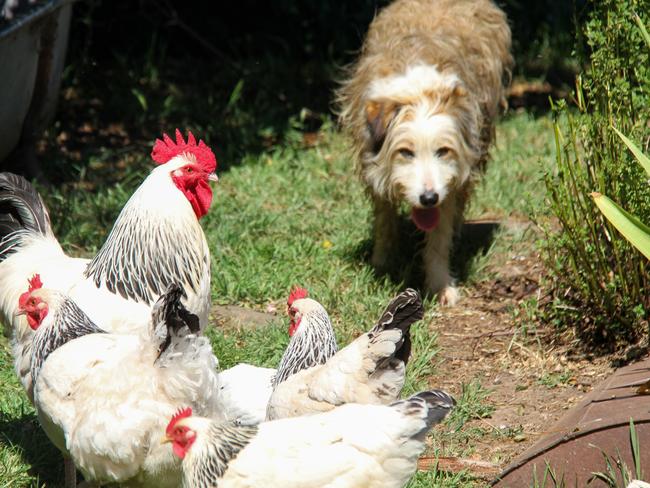
We arrived on Friday afternoon and were greeted warmly by Tim and his smithfield dogs Billy and Sandy.
The temperature was nearing 30C – 7C warmer than Hobart, despite being only an hour’s drive away – and in the sticky heat I briefly questioned why we hadn’t booked a beach holiday instead.
But we were booked for a 2pm farm tour so my husband, two sons (aged 7 and 4) and I clambered into a 24-seater bus along with a family from Queensland, ready to see what Curringa had to offer.
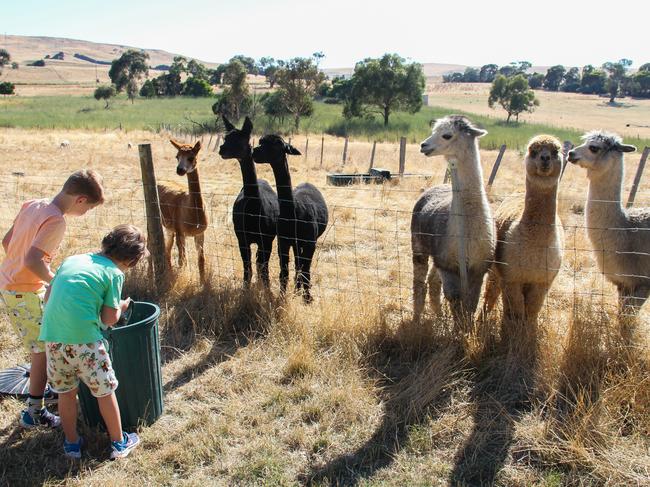
Let me be clear – this is not some luxury air-conditioned coach with plush reclining seats and tinted windows. In fact, Tim was quick to point out that sliding open the vehicle’s windows was the most “air conditioning” we could expect as we bumped along the farm’s dusty gravel roads.
And yes, on a hot summer day, it was definitely sticky. But we were here for a taste of realistic farm life, and that’s exactly what we got. We travelled across the 3km long and 1km wide property and stopped to look at opium and onion seed crops, while listening to Tim share tales of life on the land which he tailored perfectly to suit both the adults and the children on the tour.
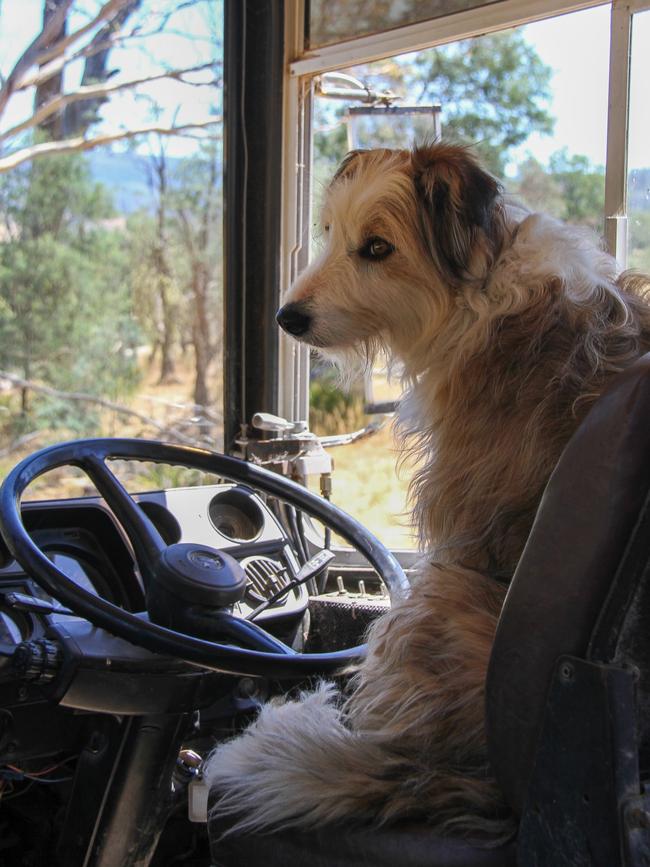
Sheepdog Billy sat at the front of the bus alongside his owner and was quick to hop into the driver’s seat whenever us humans got off for a wander.
Billy also showed off his talents as he rounded up a flock of wayward sheep and watched with interest as we fed hay to the farm’s two highland cows.
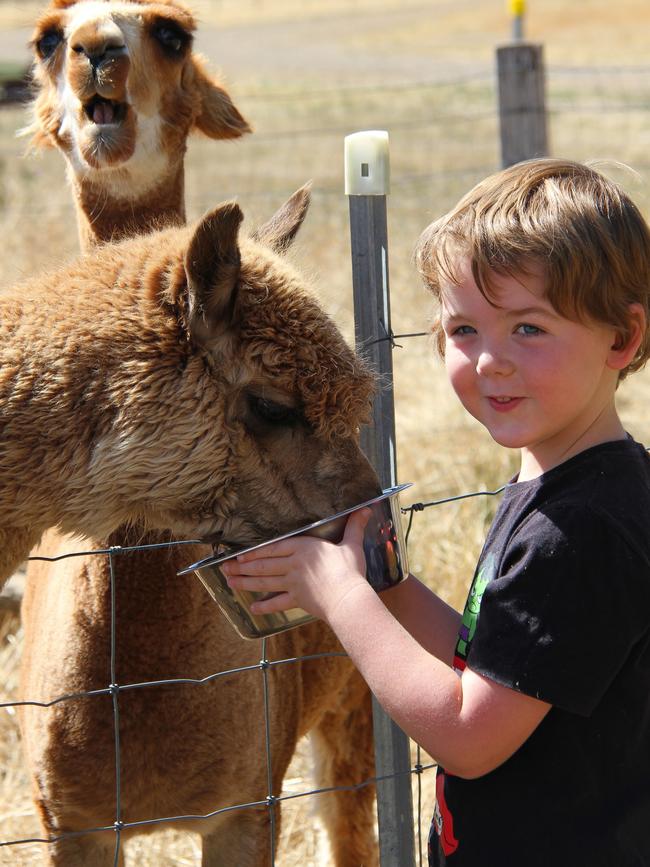
We also fed the inquisitive alpacas – which my boys absolutely loved – and enjoyed some wildlife spotting in the farm’s conservation forest where wallabies, wombats, echidnas and native birds are regularly seen. We also visited Tim’s chooks to collect eggs, which we enjoyed for breakfast the following morning. In the old shearing shed we watched Tim expertly shear a sheep before retreating to the shade of the farm’s reception/function centre for a cool glass of traditional lemonade (made using Tim’s late grandmother’s recipe) and fluffy scones topped with lashings of cream and Jane’s raspberry jam. With a view of rolling hills and majestic black swans gliding across the nearby wetlands, it would have been easy to sit and relax here for hours.
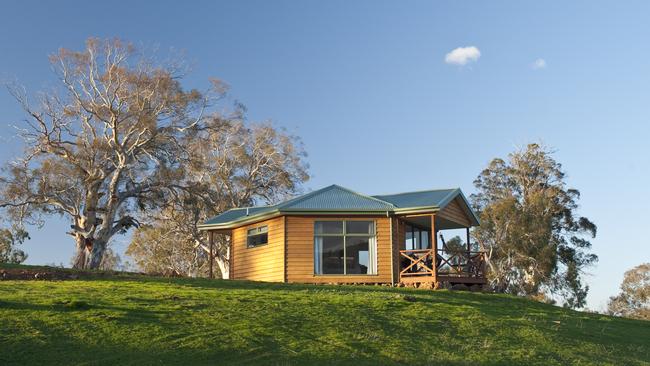
But it was time to check out our home for the next two nights – a two-bedroom self-contained (and thankfully air-conditioned) cottage known as Boobook, named after a species of brown owl that inhabits Curringa Farm.
Our modern, spacious abode – one of nine cottages of varying sizes dotted across the property – felt welcoming from the moment we stepped inside. With a master bedroom and bathroom at one end of the cottage, an open-plan living/dining/kitchen area in the middle then another bedroom and bathroom at the other end, it was like having an adult wing and a children’s wing, which meant we were far enough away for some privacy but still close enough if the boys needed us.
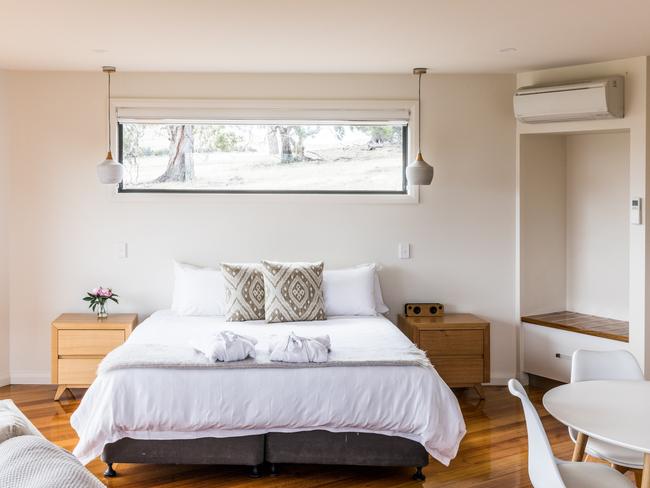
Sliding glass doors and large windows framed the views perfectly – it was like a different postcard in every room. We spent lots of time on the timber deck, enjoying the serenity of the landscape while watching cockatoos, magpies, rosellas and other birds flit among the trees as wallabies hopped along the horizon. A couple of sleek hares ventured out at dusk while hawks circled the sky looking for prey and kookaburras laughed in the distance as sheep grazed nearby.
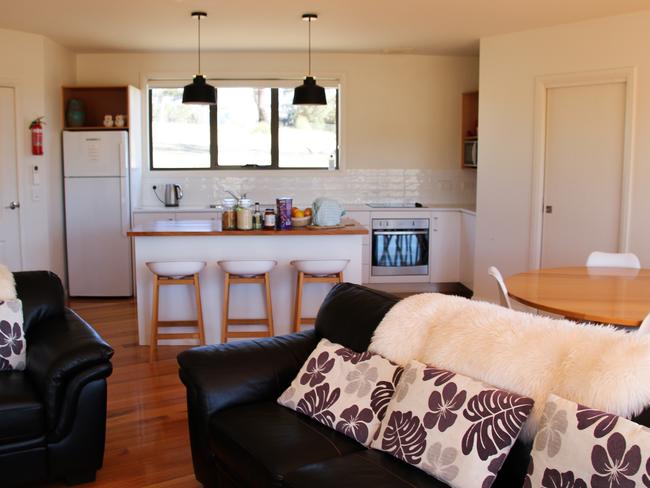
Many guests use Curringa Farm as a base to enjoy water sports on the River Derwent or nearby Meadowbank Lake, or to explore tourist hotspots like Mt Field, Russell Falls, Lake St Clair, Waddamana and Strathgordon.
Others, like us, choose to relax and enjoy a slower pace of life, whiling away time reading a book or magazine, soaking in the bath, taking a walk, feeding the animals, or enjoying a few cold beverages. We made a trip to nearby Lawrenny Estate for a gin and whisky tasting and returned with two bottles of gin to enjoy from the comfort of the deck as we watched the sky turn pink each evening.
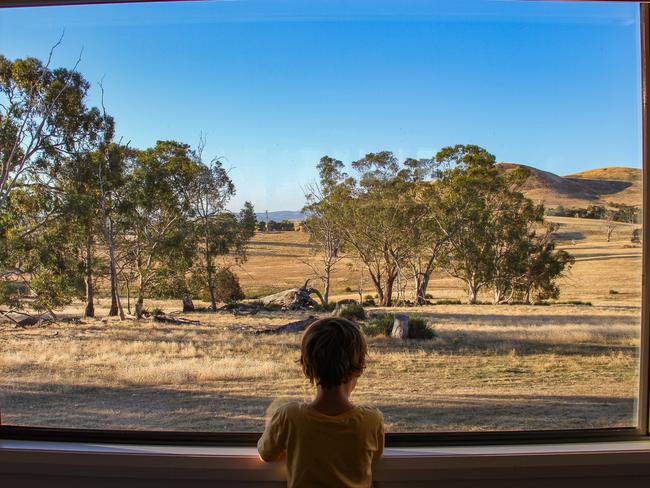
Tim and Jane provide lots of pantry staples in the cottages including pasta, rice, milk, cereal, tea and pod coffee, which is great as there are limited dining options at the nearby towns of Hamilton and Ouse. There’s an additional breakfast pack available if you’d prefer bacon, eggs, homemade bread and juice each morning while their barbecue pack is a good option if you want to dine on Curringa lamb chops, potatoes, garden salads (complete with Jane’s homemade dressing and relish) as well as a cheese platter, apple crumble and chocolates for dessert.
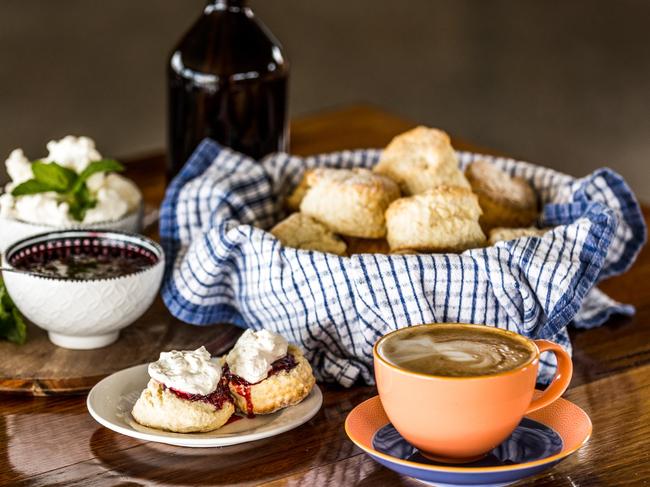
Tim’s family has farmed various properties in Tasmania since the 1820s. The now 53-year-old came to live at Curringa Farm with his parents when he was one year old and has lived there since – apart from a stint in Hobart as a teen to attend boarding school. He and Jane, a nurse who grew up on a farm in Launceston, enjoy sharing their slice of paradise with others.
Prior to the coronavirus pandemic the farmstay was booming, with about 85 per cent of visitors hailing from overseas, mainly Hong Kong, China and Singapore.
With overseas visitation on hold, Tim and Jane have been reshaping their offerings to better capture the local and interstate tourist market.
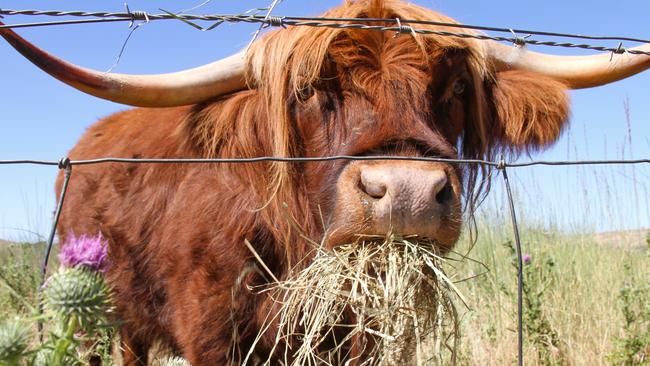
Tim says some Tasmanian families return to the property regularly – when we visited there was an extended family group staying that has been frequenting Curringa every year for 25 years with boats, kayaks and bikes in tow.
But he says there are still many Tasmanians yet to visit the property and he’d love to see them stop by – either for an overnight stay or a farm tour.
For us, Curringa Farm was an easy drive from Hobart and offered the perfect mix of entertainment for two active young animal-loving boys and some rest and relaxation for the adults.
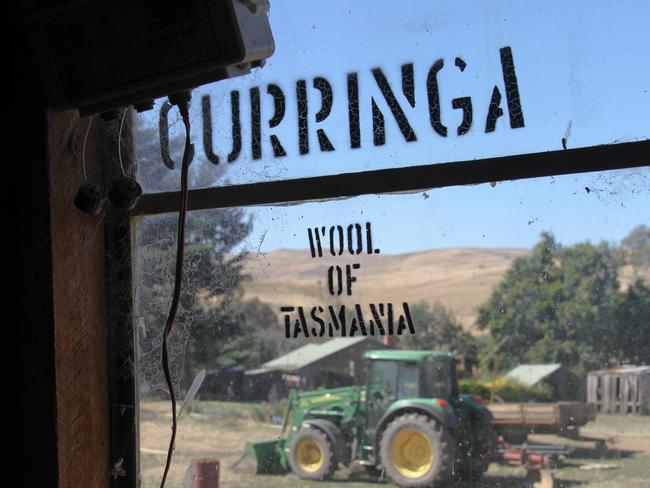
The boys stopped to feed the alpacas before we headed home – they fed them on all three days of our stay – expertly scooping pellets into stainless steel bowls for the always-hungry animals to guzzle down.
Feeding the alpacas – and the nearby horses – was the clear highlight of the trip for both boys. So, with these new furry friends capturing their attention, I asked my seven-year-old if he still thought the sheepdog was the most important animal on a farm.
And the answer, now informed by the real life antics of Billy and Sandy as opposed to a book or a YouTube video, was a resounding “yes”.
The author was a guest of Curringa Farm
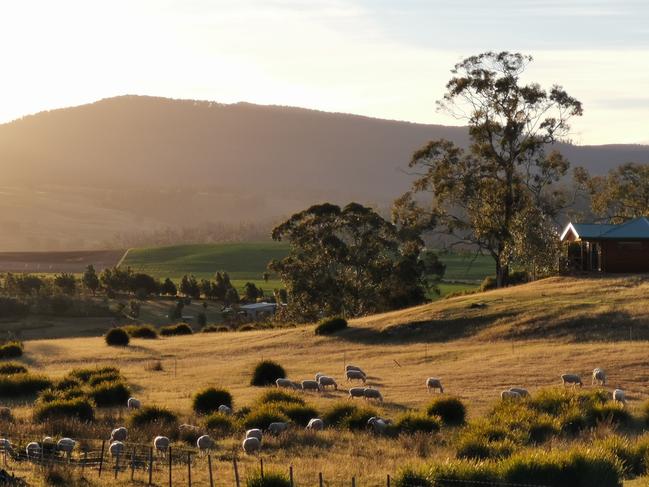
MAKE A NOTE
• Curringa Farm is located at Hamilton, in the Derwent Valley, about an hour’s drive from Hobart.
• Farm tours run regularly, by appointment, and start from $75 per adult and $35 per child.
• Accommodation in a one-bedroom cottage starts from $250 per night, with two-bedroom cottages from $275.
• Breakfast packs and barbecue hampers are available for an additional cost.
• Book at curringafarm.com.au or call 0418 863 337.


